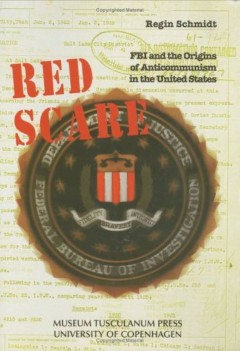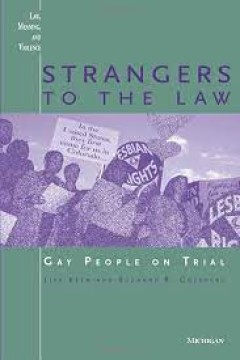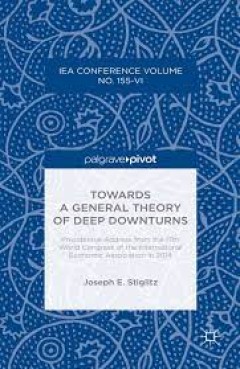Filter by

Women in the World Today: Global Women's Issues
Global Women’s Issues and the Beijing Platform for Action. This book is based on the 12 critical areas of concern identified at the Beijing Conference: 1 The persistent and increasing burden of poverty on women 2 Inequalities and inadequacies in and unequal access to education and training 3 Inequalities and inadequacies in and unequal access to health care and related services 4 Violence…
- Edition
- -
- ISBN/ISSN
- -
- Collation
- -
- Series Title
- -
- Call Number
- 320 DEP w

@' is for Activism Dissent, Resistance and Rebellion in a Digital Culture
How have politics and activism been transformed by digital media, including digital television, online social networking and mobile computing? Since the emergence of new technologies, new modes of cooperation, deliberation and representation have risen to the fore, @ is for Activism maps out how political relationships have been reconfigured and new have emerged through the use of new technolog…
- Edition
- -
- ISBN/ISSN
- 9781783710515
- Collation
- -
- Series Title
- -
- Call Number
- -

Transnational Solidarity in Times of Crises Citizen Organisations and Collec…
This open access collection is devoted to an in-depth, qualitative analysis of practices of cross-national solidarity in response to the current political and social crises, from citizens’ initiatives to networks of cooperation among civil society actors. The book analyses existing informal groups at the grassroots, furthering transnational solidarity in three thematic areas: disability, unem…
- Edition
- -
- ISBN/ISSN
- -
- Collation
- -
- Series Title
- -
- Call Number
- -

Red Scare : FBI and The origins of Anticommunism in The United States
The anticommunist crusade of the Federal Bureau of Investigation and its legendary director J. Edgar Hoover during the McCarthy era and the Cold War has attracted much attention from historians during the last decades, but little has been known about the Bureau's political activities during its formative years. This work breaks new ground by tracing the roots of the FBI's political surveillance…
- Edition
- -
- ISBN/ISSN
- 9788763500128
- Collation
- -
- Series Title
- -
- Call Number
- 320 SCH r

Scattering Chaff Canadian Air Power and Censorship During the Kosovo War
Most Canadians know little, if anything at all, about the role of the Canadian Air Force in the 1999 Kosovo Air War. Yet lives were at put at stake as mission dedication and military skill were pushed to the limit. Some of Canada’s most prominent journalists attempted to report on the war, but came away virtually empty handed. Daily briefings given at the National Defence Headquarters provide…
- Edition
- -
- ISBN/ISSN
- 9781773850313
- Collation
- -
- Series Title
- -
- Call Number
- -

Strangers to the Law Gay People on Trial
In 1992, the voters of Colorado passed a ballot initiative amending the state constitution to prevent the state or any local government from adopting any law or policy that protected a person with a homosexual, lesbian, or bisexual orientation from discrimination. This amendment was immediately challenged in the courts as a denial of equal protection of the laws under the United States Constitu…
- Edition
- -
- ISBN/ISSN
- 9780472086450
- Collation
- -
- Series Title
- -
- Call Number
- -

Towards a General Theory of Deep Downturns Presidential Address from the 17t…
Joseph Stiglitz examines the theory behind the economic downturns that have plagued our world in recent times. This fascinating three-part lecture acknowledges the failure of economic models to successfully predict the 2008 crisis and explores alternative models which, if adopted, could potentially restore a stable and prosperous economy.
- Edition
- -
- ISBN/ISSN
- 978-1-137-58691-9
- Collation
- -
- Series Title
- -
- Call Number
- -

Toward Well-Oiled Relations? China’s Presence in the Middle East following…
With China replacing the United States as the world's leading energy user and net oil importer, its relations with the Middle East is becoming a major issue with global implications. Horesh and his contributors set out to analyse the implications of China's growing presence in the Middle East.
- Edition
- -
- ISBN/ISSN
- 978-1-137-53979-3
- Collation
- -
- Series Title
- -
- Call Number
- -

Toward Balanced Growth with Economic Agglomeration Empirical Studies of Chin…
This book explains the relationships between equality and efficiency, as well as between government and market, in urban-rural and regional development by providing theoretical frameworks and empirical evidence. Urban-rural development in China is understood from a regional perspective, while the core issue of urban-rural and regional development is cross-regional resource reallocation driven b…
- Edition
- -
- ISBN/ISSN
- 978-3-662-47412-9
- Collation
- -
- Series Title
- -
- Call Number
- -

Importing EU Norms: Conceptual Framework and Empirical Findings
This interdisciplinary work presents a conceptual framework and brings together constructivist and rationalist accounts of how EU norms are adopted, adapted, resisted or rejected. These chapters provide empirical cases and critical analysis of a rich variety of norm-takers from EU member states, European and non-European states, including the rejection of EU norms in Russia and Africa as well a…
- Edition
- -
- ISBN/ISSN
- 978-3-319-13739-1
- Collation
- X, 262
- Series Title
- -
- Call Number
- 361 IMP
 Computer Science, Information & General Works
Computer Science, Information & General Works  Philosophy & Psychology
Philosophy & Psychology  Religion
Religion  Social Sciences
Social Sciences  Language
Language  Pure Science
Pure Science  Applied Sciences
Applied Sciences  Art & Recreation
Art & Recreation  Literature
Literature  History & Geography
History & Geography